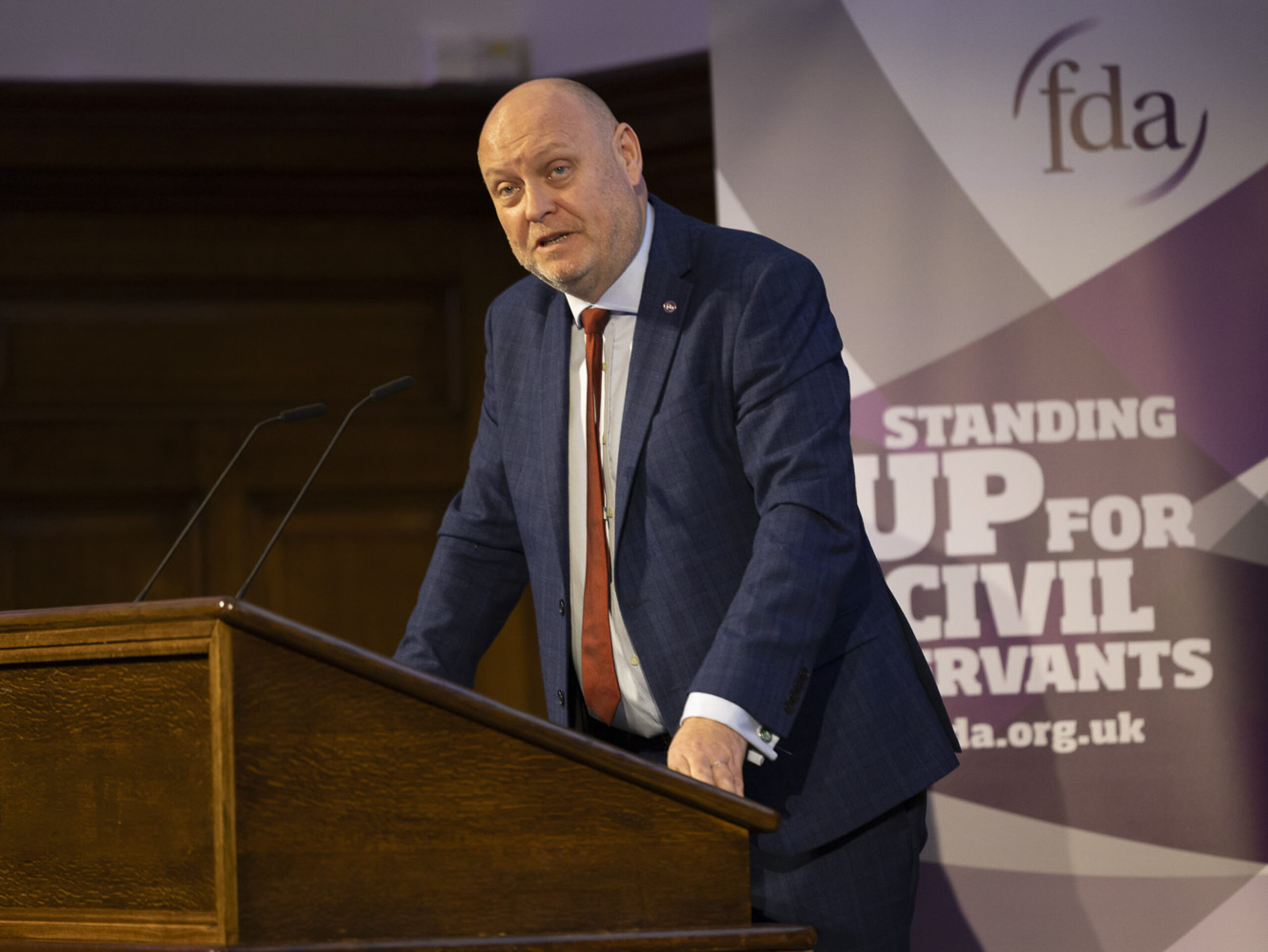The state of pay in the civil service

The FDA’s new report, ‘The state of pay in the civil service’, paints a stark picture, with unambiguous testimony from civil servants detailing widespread dissatisfaction with the pay system, which is having a devasting impact on morale.
The report, written by FDA Intern Fran Milner, is based on findings from the largest survey of FDA members in the union’s history. More than 4,700 civil servants completed the survey (nearly a third of FDA members in the civil service) detailing the impact that pay restraint is having on them.
The survey found that:
- 64% said they are not satisfied with their current pay.
- 76% believe that the current system is unfair and inequitable.
- 65% answered that they do not see a clear link between their skills, knowledge and experience, and their pay.
- 31% confirmed that they are actively looking for jobs outside of the civil service.
- 87% of those who are thinking of leaving the civil service said that pay was the main factor.
- 69% have reported a decrease in their morale over the last year.
- In his foreword to the report, FDA General Secretary Dave Penman declared that “civil service pay is broken”.
“The consequences of over three decades of neglect and over a decade of pay restraint has left civil servants demoralised and the civil service in a perilous state,” he added. “Our public services are run by people. The civil service must be able to recruit and retain the skilled and talented individuals it needs to run the public services we all rely upon. No public sector worker starts their career in search of riches, they just want to be treated fairly. Unfortunately, the civil service pay structures no longer do that.”
The General Secretary also called on the civil service to work with the FDA and fellow unions to “reform pay and reward structures”. Acknowledging that meaningful reform will “take time”, Penman is clear that this report “unequivocally demonstrates” that “the consequences of the long-term neglect of civil service pay are showing themselves in the here and now” and so “there must be immediate action taken to address some of the short-term issues”.
Launching the report at a hybrid event hosted at the FDA’s headquarters, Centenary House, Penman was joined on the panel by report author Fran Milner, Associate Director at the Institute for Government Rhys Clyne, Researcher at the Institute for Public Policy Research Joseph Evans, and TUC Assistant General Secretary Kate Bell.
Bell reflected on two decades where civil service pay has “gone nowhere” and said that a powerful theme from the report is the fact that civil servants simply do not feel respected. Clyne suggested that arguments over civil service pay can be “particularly difficult” because there are issues around the perception of what a civil servant actually is – people don’t necessarily see that they can be “everything from Permanent Secretaries to prison officers”.
66% of respondents reported that they were more inclined to look for jobs outside the civil service than twelve months ago and Evans suggested that recruitment and retention problems in the civil service are indicative of wider issues across the public sector. With a large number of vacancies well publicised across the NHS and education sector, he believes that pay “really fuels” these recruitment problems.
Bell added that in moments of crisis, “the penny drops” and the government realises that we need more people to deliver public services, but they need to recognise that in normal times as well, stressing that “if you want better public services you need people to deliver them”. She also added that were was “room for some optimism”, as industrial relations really can deliver for members, with Penman highlighting the recent breakthrough on Fast Stream pay which was hard won by FDA members.
You can read the full report online here.
Related News
-

FDA secures 6.41% pay increase for Fast Streamers
The FDA’s Fast Stream members have voted to accept a pay award for 2025-26 with a 6.41% increase for second year salaries. The deal has been agreed under the Cabinet Office’s annual pay remit guidance process for the first time.
-

Civil service pay award demonstrates government has “failed to grasp the nettle of fundamental reform”
The government has published its Civil Service Pay Remit Guidance alongside a Written Ministerial Statement confirming the government’s decision to accept the recommendations of the SSRB.
-

ADC 2025: Penman says civil servants are “hungry for reform”
At the union’s Annual Delegate Conference delegates heard from guest speakers FDA General Secretary Dave Penman, journalist Lewis Goodall, and Cabinet Office minister Georgia Gould.